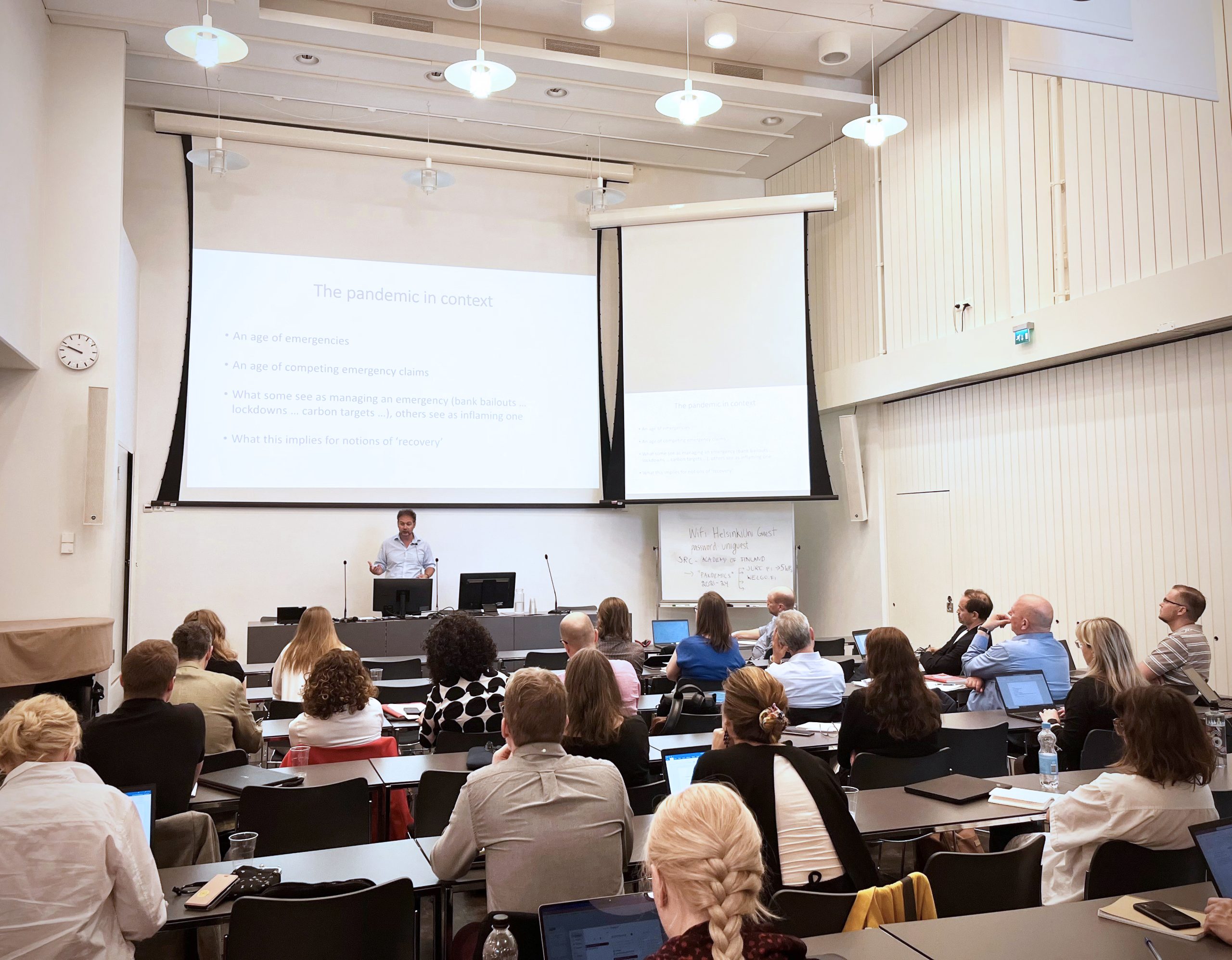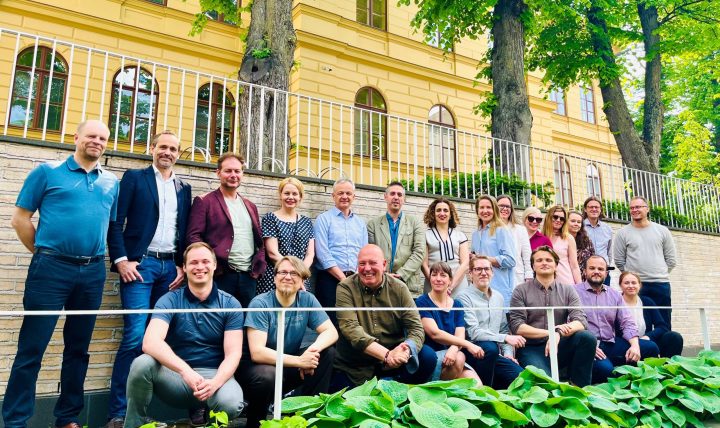JuRe’s workshop discussed the politicisation of the COVID-19 crisis and the post-pandemic recovery
European social scientists met on 15–16 June 2023 in a workshop organised by JuRe in Helsinki. The workshop focused on political science research and examined which themes politicised during the COVID-19 crisis and the post-pandemic recovery. The discussion focused on, among other things, the growing role of the state, labour market disputes, and challenges to democracy, representation and trust. The workshop included a public keynote lecture and several presentations based on draft research articles.
Concepts of emergency and recovery politicised during the pandemic
The public lecture of the workshop was held by Professor Jonathan White (London School of Economics). His topic was “Recovery as emergency” and he talked about crises and the politicisation of the recovery from them. The lecture was based on his emergency-related literature on European politics, where he argues that in crises, opportunities for undemocratic control increase.
In his book Politics of Last Resort: Governing by Emergency in the European Union, published in 2019, White describes the unconventional measures that were introduced in connection with Brexit and the immigration crisis. Some of these measures reflect the weakness of the executive power rather than its strength. In his writings, White warns that technocratic politics is turning against itself, as operating methods that emphasise these features also give populist movements a way to legitimise undemocratic policies.
In his lecture, White emphasised the significance of weakness in the formation of an emergency. What drives emergencies is the executive power having doubts about their ability to address the given situation. Representative democracy may lack the capacity to act in a crisis that requires rapid solutions. According to White, strengthening representation may provide an opportunity to strengthen the democratic nature of emergency management – including in the EU. Democratizing executive power in the EU in the age of emergencies is, in fact, the topic of White’s most recent article.
Although the differences between crises were not discussed in the lecture, White pointed out that the problems of emergency management he described apply more to situations where there is no social consensus in contrast to crises on which the society has a common position. Emergency policies and the politicisation of the recovery from crises are fundamentally influenced by the fact that people value different things in the prevailing circumstances: for some, the solution offered is actually a problem. Competing social crisis frames emerge from different valuations, which are fought over through the media.

Several societal conflicts became politicized during the crisis
The presentations after the public lecture highlighted several societal conflicts that became politicized during the COVID-19 crisis. For instance, as a result of the international wave of strikes, the working conditions in the healthcare sector became the target of both public sympathy and special state-driven measures. Other conflicts emerged between the progressives and traditionalists, between regions and, within administrations. The presentations discussed the pandemic governance, public behavior and attitudes towards restrictions and the forms of mistrust to the media and the administration.
According to Daniel Kübler (Universität Zürich), in Switzerland, the management of the pandemic has increased tensions between the central government and different regions. In his representation, Dag Wollebaek (Institutt for Samfunnsforskning) pointed out that the approach to the management of the pandemic reflects the socio-cultural differences between individuals.
The expectation of an increased role for the state came up several times during the workshop. According to Andreas Nölke (Goethe-Universität Frankfurt), governments have taken a greater role in supporting companies. It remains to be seen what role the state will adopt in crisis management in relation to, for instance, just recovery.
The management of the pandemic has also affected the relationship between the EU and the Member States. Stella Ladi (Queen Mary University of London) argued that measures put in place to deal with the pandemic, such as the use of recovery funds, have strengthened EU integration and increased the Europeanisation of the Member States.
On the other hand, it became clear that the war in Ukraine that followed the pandemic had significantly changed the prevailing operating environment. For instance, in their presentation evaluating the management of the pandemic in Sweden, Jörgen Sparf and Evangelia Petridou (Mittuniversitetet) argued that concerns about the expansion of the war in Ukraine and Sweden’s defence capability currently dominate the public debate, instead of the recovery from the pandemic.
As in previous crisis periods, the COVID-19 pandemic triggered political conflicts and the ways in which they are regulated. These are becoming the new normal, linked to the new crisis developments that have since begun. Research on the COVID-19 pandemic and its aftermath is therefore a moving target in political science, the topicality of which did not end with the acute phase of the pandemic.
Learn more about the workshop programme
Text: Johanna Ketola, Mikko Värttö and Sami Torssonen
Images: Mari Taskinen

